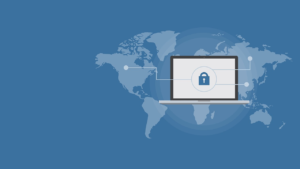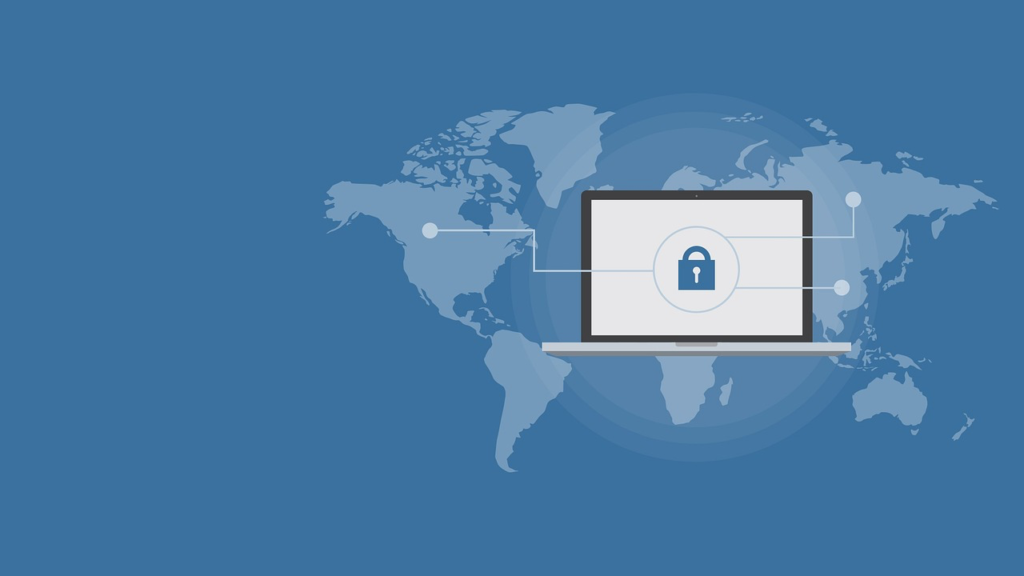In this day and age, it’s more important than ever to make sure your business is secure from cyber-attacks. Hackers are becoming increasingly clever every day, and it’s only a matter of time before they target your company. That’s why we’ve put together some tips to help secure your business from these threats. Follow these tips, and you can rest assured that your data is safe from harm!

Via Pixabay
Implement a Strong Password Policy
A firm password policy is one of the most critical steps to protect your data. Make sure that all employee accounts have secure passwords and require regular updates. Additionally, use two-factor authentication whenever possible and make sure that any cloud services are encrypted.
Changing your password regularly is also essential, as it will help to prevent someone from guessing your password and gaining access to your account. If you ever forget the password to your Mac, don’t worry. You can quickly restore it without losing any necessary documents. Just follow the link provided here: https://setapp.com/how-to/how-to-reset-lost-mac-password.
Install Firewalls and Anti-Virus Software
Firewalls guard against malicious software entering your network, while anti-virus software helps keep malware from spreading through your systems. Both will help protect your information from attackers looking to steal or damage it. Make sure these are updated regularly to remain effective.
Train Employees on Cyber Security
Employees must be aware of the threats and know how to protect themselves. Teach them about phishing scams, password security, and how to spot malicious links or attachments. Invest in regular training sessions and ensure everyone is on board with the plan.
For example, phishing scams are emails that look legitimate but malicious. These emails can contain malicious links, attachments containing viruses, or requests for sensitive information such as passwords or credit card numbers. Ensure to educate your employees on what to look out for, and never send them any sensitive information via email.
Secure Communication Channels
Encrypting communication channels helps keep confidential information safe from hackers. Use end-to-end encryption whenever possible and ensure that emails and other messages are secure. Additionally, consider investing in a virtual private network (VPN) to provide another layer of security for your communication channels.
A VPN will encrypt your data so that no one outside the private network can read it. It also helps hide your IP address so hackers cannot track it. Investing in a good quality VPN is essential for protecting confidential data and keeping your business safe from cyber threats.
Monitor Network Activity
Network activity should be monitored for suspicious behavior, such as unusual login attempts or large data transfers. Invest in an observing training system that will alert you if something unexpected occurs. Additionally, consider implementing mobile device management (MDM) solutions to help keep track of corporate devices in use.
Create Cybersecurity Policies and Procedures
Having clear policies and procedures in place helps ensure everyone is on the same page regarding cybersecurity. For example, ensure privileges are only given out after approval and that all security measures are documented in a written policy. This will help ensure that everyone follows the same protocols and keeps your data safe.
Be Prepared for Emergencies
No matter how many precautions you take, there’s always a chance of something going wrong. Be prepared for emergencies by having a plan to help mitigate any damage. Make sure you have backups of your data and system configurations and an incident response team ready to act if anything happens.
Limit Access to Sensitive Data
Make sure that only authorized personnel have access to sensitive information such as customer credit card numbers or employee records. Use strict permissions and ensure employees understand the importance of securing this data. Additionally, consider using access control tools to prevent unauthorized access.
Regularly Back Up Data
Regular backups of all your data ensure that you can recover quickly if anything happens. Please ensure these are stored offsite, protecting them from disasters affecting your premises.
Secure Mobile Devices
With so many people using mobile devices for work, ensuring these are secure is essential. Implement security policies such as password protection and encryption, and ensure all applications are up to date.
Update Software Regularly
Outdated software can be a significant vulnerability, allowing hackers to exploit known weaknesses. That’s why it’s essential to keep your systems up to date with the latest patches and updates whenever they become available.
Make Sure You Have A Secure Wi-Fi Set Up
Wireless networks need to be secured correctly to protect from malicious intruders. Use strong encryption, such as WPA2, and ensure the settings are regularly checked and updated.
Conduct Regular Audits
Regular security audits help ensure that your systems are kept up to date, and any issues are dealt with swiftly. In addition, ensure you conduct standard penetration tests and vulnerability scans to identify potential weaknesses or vulnerabilities.
Be Prepared for Disasters
Make sure you have an effective disaster recovery plan to get back on track quickly if anything happens. Additionally, consider investing in cybersecurity insurance to cover any losses incurred due to a breach or attack.
Educate Yourself On The Latest Scams
It’s essential to stay up to date on the latest threats. Read up on security topics and familiarize yourself with the current scams that hackers use. Then, you’ll know what to look for if you ever encounter something suspicious.
Another great way to stay informed about the latest scams is by setting up Google Alerts for keywords related to cyber security. These alerts will notify you whenever a new article or blog post discusses these topics so that you can stay ahead of emerging threats.

Via Pixabay
Use Multi-Factor Authentication
An extra layer of authentication helps keep your systems secure by ensuring that even if someone does gain access, they won’t be able to get very far without additional authorization from you. Multi-factor authentication adds a second (or third) verification step before granting access, meaning that any attempts at unauthorized entry will be quickly detected.
By following these tips, you can ensure that your business is secure and better prepared for any threats it may face. It’s essential to stay up to date with the latest security trends and technologies to keep ahead of any potential threats before they become an issue. In addition, investing in the proper cybersecurity solutions can help save time, money, and resources.
